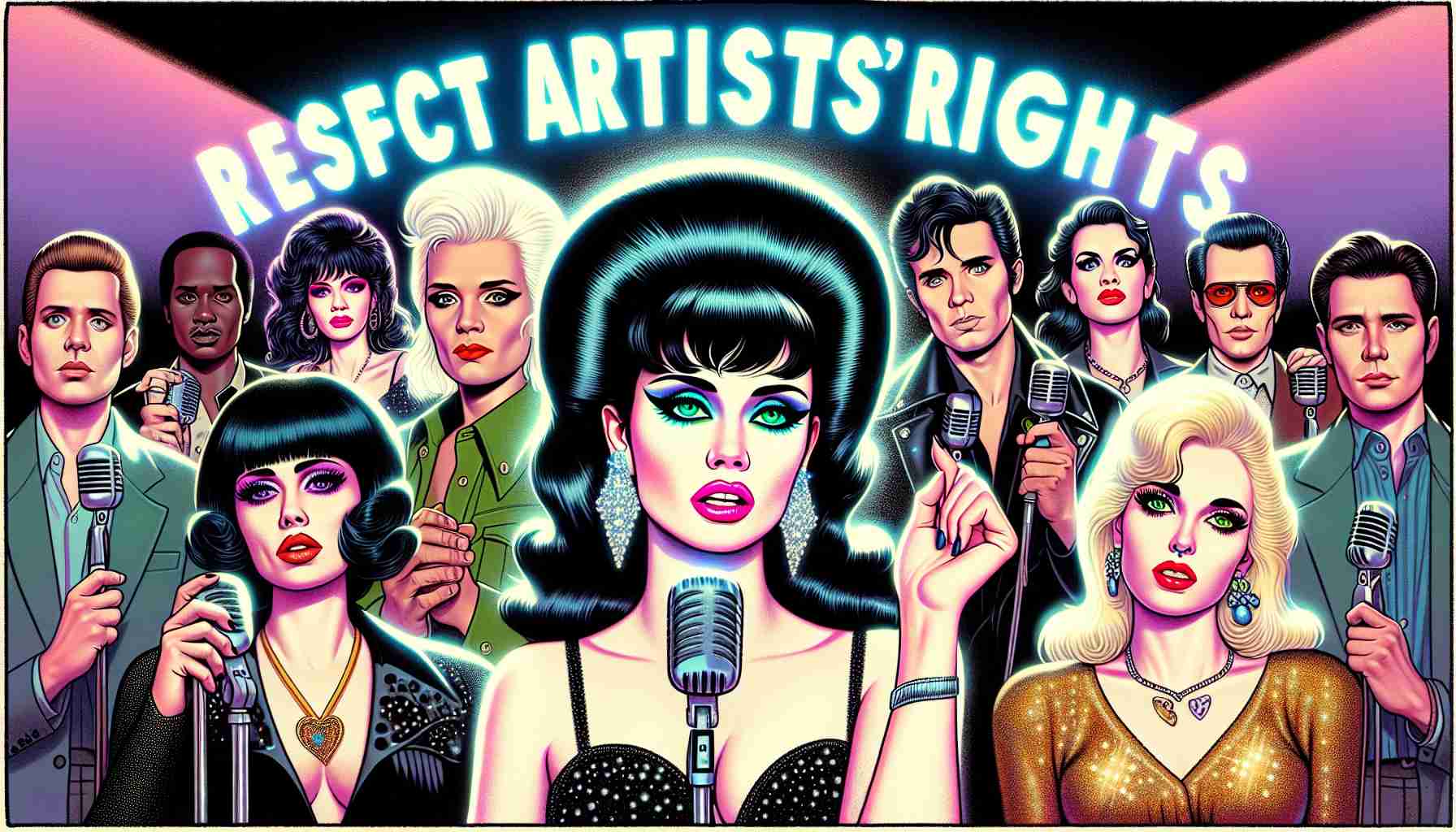A group of more than 200 renowned artists and songwriters, including Katy Perry and Miranda Lambert, have drafted an open letter urging AI developers to acknowledge the rights of musicians. The letter, presented by the Artist Rights Alliance, emphasizes the potential benefits of artificial intelligence (AI) when utilized responsibly to enhance human creativity.
The artists express concerns regarding the misuse of AI, emphasizing the need to prevent the exploitation of creators’ works and the dilution of royalty pools. They argue that the unauthorized use of artists’ work to train AI models directly replaces the efforts of human artists and undermines fair compensation for their creative contributions.
The open letter appeals to AI developers, technology companies, and digital music services to commit to refraining from developing or deploying AI music-generation technologies or tools that undermine human artistry or deny artists fair remuneration for their work.
The list of signatories to this important letter spans a diverse range of musicians, including Stevie Wonder, Sheryl Crow, Nicki Minaj, and the estate of Frank Sinatra. Notable names such as Mumford & Sons, Imagine Dragons, and Billie Eilish have also endorsed the initiative. The Artists Rights Alliance, which initiated the letter, is a member of the Human Artistry Campaign, a collective dedicated to advocating for fair treatment and a flourishing creative economy in the digital realm.
In related news, Tennessee recently enacted the ELVIS Act, a groundbreaking legislative achievement in protecting artists’ rights in the context of AI. Luke Bryan, an artist who attended the signing of the bill, commended the state’s commitment to safeguarding the voices of artists and ensuring that their hard work is properly valued. The ELVIS Act, which adds vocal likeness to the list of protected rights, reflects Tennessee’s recognition of name, photographs, and likeness as property rights. The bipartisan bill not only establishes legal avenues for holding individuals liable for unauthorized use of artists’ voices but also prohibits the use of technology to produce an artist’s name, photographs, voice, or likeness without proper authorization.
The enthusiasm surrounding the ELVIS Act highlights the growing need for comprehensive legislation to protect artists in an era of rapid technological advancements. It serves as an exemplary model for other states to follow, taking meaningful steps towards recognizing and defending the rights of artists.
FAQs
1. What is the purpose of the open letter signed by Katy Perry and Miranda Lambert?
– The open letter urges AI developers to respect the rights of musicians and refrain from using AI to exploit artists’ works.
2. Which organization submitted the open letter?
– The Artist Rights Alliance, a non-profit organization comprised of working musicians, performers, and songwriters who advocate for a fair creative economy.
3. What concerns do the artists express regarding AI?
– The artists express concerns about the unauthorized use of their work to train AI models, which directly undermines the value and compensation they receive for their creative contributions.
4. Who else has signed the open letter?
– The open letter has been endorsed by a diverse array of musicians, including Stevie Wonder, Sheryl Crow, Nicki Minaj, and the estate of Frank Sinatra.
5. What is the ELVIS Act, and why is it significant?
– The ELVIS Act is a recently enacted legislation in Tennessee that protects artists’ rights in relation to AI. It recognizes vocal likeness as a protected right and establishes legal avenues to hold individuals liable for unauthorized use of artists’ voices.
The music industry is a multi-billion dollar industry that has undergone significant transformation due to advancements in technology. The development of AI has introduced new possibilities and challenges for artists and musicians. Market forecasts indicate that the global market for AI in the music industry is expected to reach $1.5 billion by 2027, with a compound annual growth rate of 11.7% during the forecast period. This growth is driven by the increasing use of AI in music creation, composition, and production processes.
However, the misuse of AI poses significant concerns for musicians. The open letter signed by renowned artists highlights the need to prevent the exploitation of creators’ works and the dilution of royalty pools. The unauthorized use of artists’ work to train AI models directly replaces the efforts of human artists and undermines fair compensation for their creative contributions. This issue raises questions about the ethical use of AI and the importance of respecting the rights of musicians.
In response to these concerns and the need for comprehensive legislation, the state of Tennessee enacted the ELVIS Act. This groundbreaking legislative achievement recognizes vocal likeness as a protected right and establishes legal avenues for holding individuals liable for unauthorized use of artists’ voices. The ELVIS Act serves as a model for other states to follow in protecting and valuing the rights of artists in an era of rapid technological advancements.
It is crucial for AI developers, technology companies, and digital music services to take responsibility for promoting responsible AI use in the music industry. This includes refraining from developing or deploying AI music-generation technologies or tools that undermine human artistry or deny artists fair remuneration for their work. By doing so, they can contribute to a flourishing creative economy and ensure that artists are properly recognized and compensated for their contributions.
For more information on the rights of musicians and the impact of AI in the music industry, you can visit the Artist Rights Alliance website.
The source of the article is from the blog agogs.sk

